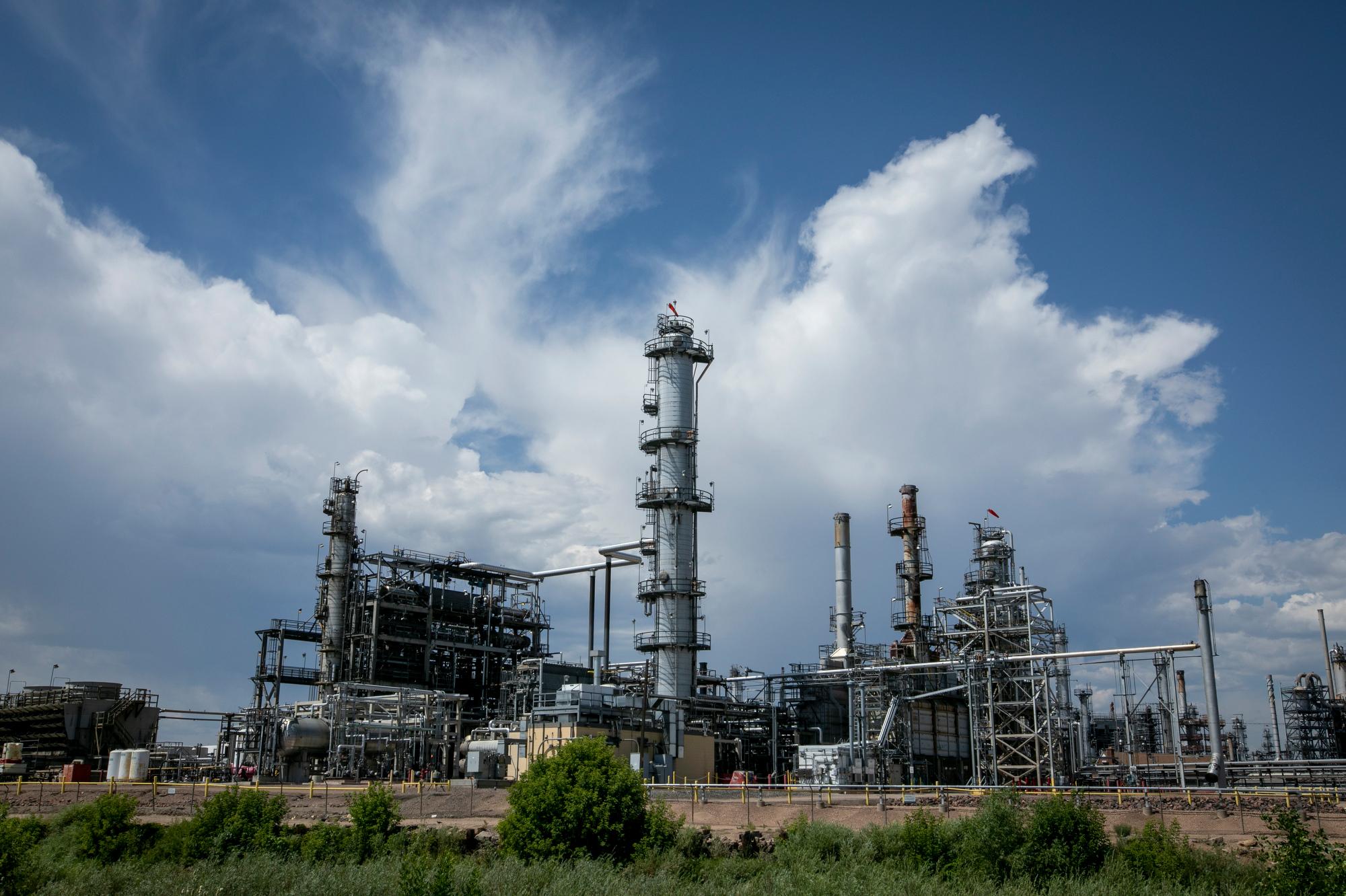
After Suncor Energy temporarily shut down Colorado's only oil and gas refinery last month, many industry experts told drivers to expect a rise in prices at the pump.
Despite some signs that prices weren’t affected, those predictions now appear to be coming true.
New data from the American Automobile Association show the average cost of a regular gallon of gas in Colorado has shot up from $2.86 to $3.82 since Suncor Energy paused production at the Commerce City refinery on Dec. 21. Fuel prices have surpassed the national average over the same period.
Skyler McKinley, a spokesperson for AAA Colorado, said the price surge is likely due to the shutdown since the refinery usually provides between 35 and 40 percent of gasoline and diesel consumed statewide.
Without that resource, he said Colorado's fuel prices have increased far faster than in neighboring states like New Mexico, where a regular gallon costs about 30 cents more than it did a month ago.
"The difference in Colorado is almost entirely attributable to Suncor," McKinley said. "We'd expect gas prices in Colorado to be rising, but certainly not to the extent that we've seen."
Suncor Energy paused production after a severe cold snap triggered a series of malfunctions at the refinery, including a fire that injured two workers on Christmas Eve. The Canadian oil and gas company doesn't expect to resume full operations until late March.
The problems have also caused a string of pollution incidents at the facility, which is located near heavily Latino neighborhoods in Commerce City and north Denver. Those problems include releases of toxic gases — like hydrogen sulfide and sulfur dioxide — beyond what's allowed in the facility's state air pollution permit. Suncor also released illegal levels of carcinogenic benzene into a nearby creek following one of the refinery fires.
Meanwhile, Gov. Jared Polis has taken action to control rising fuel prices. His administration formalized a verbal emergency declaration on Friday activating the National Guard to help fuel suppliers manage their planning and logistics. The declaration also formalizes his moves to ease regulations to let truck drivers carry heavier fuel loads on state highways and work longer hours.
Grier Bailey, who represents local gas stations as the executive director of the Colorado Wyoming Petroleum Marketers Association, thinks those actions have helped prevent even higher fuel prices. That's because the shutdown placed a new burden on the trucking industry, which is now delivering far more fuel from local pipeline terminals or out-of-state refineries, he said.
"What it comes down to is a guy in a truck. Instead of driving to Commerce City, they might be driving all the way to Bloomfield, New Mexico to get fuel," Bailey said.
Bailey now wants a more aggressive response from the federal government. The U.S. Federal Motor Carrier Safety Administration has issued an emergency declaration due to the shutdown, allowing drivers to pull longer hours in the region around Colorado.
He says the next step is to allow heavier fuel loads on interstate highways.
"The governor has been super supportive, but that's not really his decision," Bailey said.









